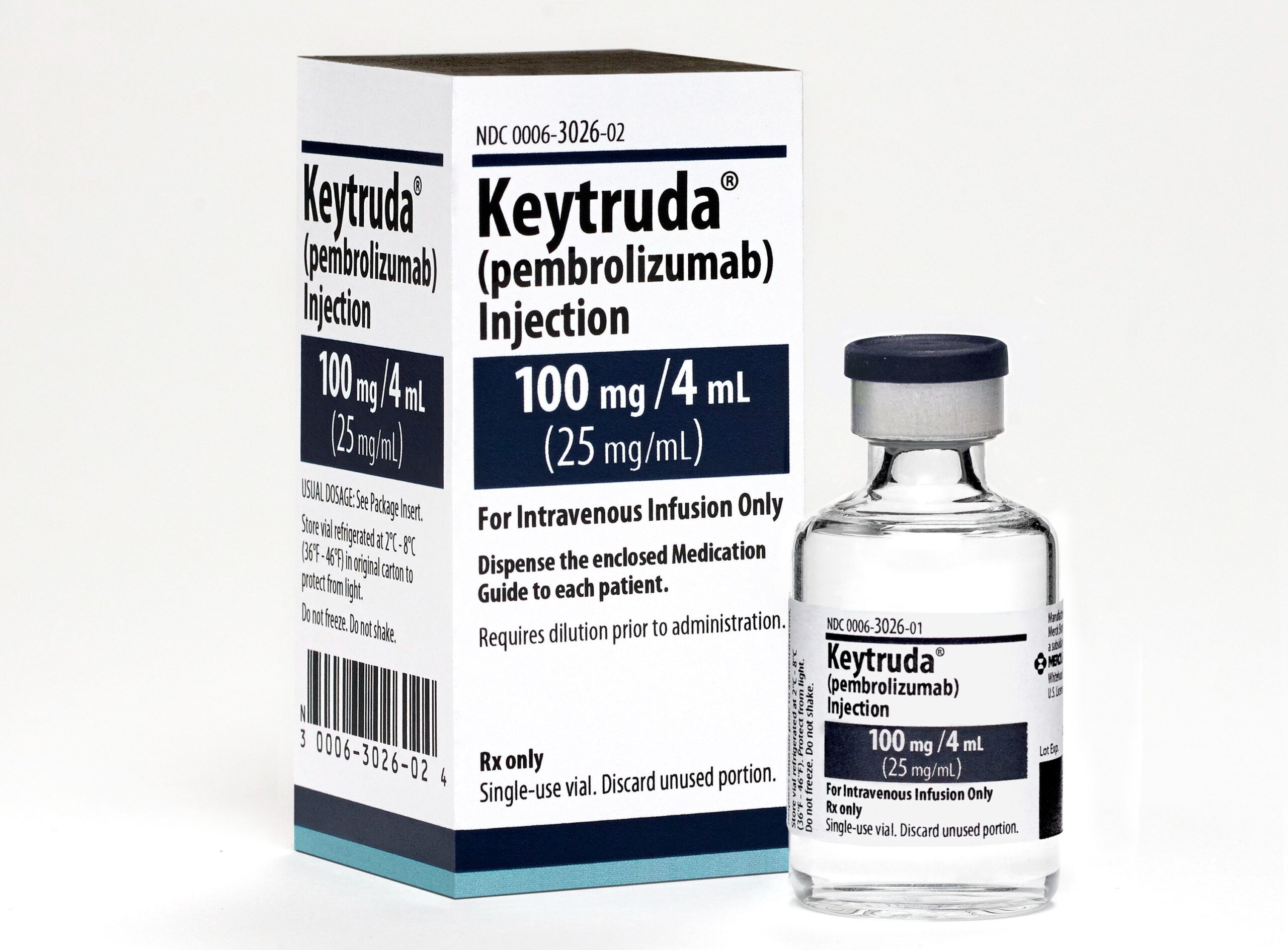
Merck (MSD) has reported that Phase III KEYNOTE-522 trial of its anti-PD-1 therapy Keytruda (pembrolizumab) plus chemotherapy showed a statistically significant event-free survival (EFS) in high-risk early-stage triple-negative breast cancer (TNBC) patients.
A humanised monoclonal antibody, Keytruda hinders the interaction between PD-1 and its ligands, PD-L1 and PD-L2, to trigger T lymphocytes that could impact tumour cells as well as healthy cells.

Discover B2B Marketing That Performs
Combine business intelligence and editorial excellence to reach engaged professionals across 36 leading media platforms.
The anti-programmed death receptor-1 (PD-1) treatment boosts the immune system’s ability to find and fight tumour cells.
The randomised, double-blind Phase III trial enrolled a total of 1,174 subjects who were categorised in a 2:1 ratio to be given either the Keytruda regimen or the chemotherapy-placebo regimen.
Subjects in the treatment arm received neoadjuvant Keytruda plus chemotherapy before surgery and then adjuvant Keytruda administered as monotherapy after surgery.
In the chemotherapy-placebo arm, subjects received neoadjuvant chemotherapy followed by an adjuvant placebo.

US Tariffs are shifting - will you react or anticipate?
Don’t let policy changes catch you off guard. Stay proactive with real-time data and expert analysis.
By GlobalDataData from the trial showed that the subjects receiving the Keytruda regimen had a 37% reduced risk of EFS events versus the chemotherapy-placebo arm after 39 months of median follow-up.
Earlier, Merck reported that the KEYNOTE-522 trial met the dual primary goal of pathological complete response (pCR) at the initial interim analysis.
The trial is progressing for further follow-up of a key secondary goal, overall survival.
During this fourth interim analysis, Keytruda offered a 28% decrease in the risk of mortality compared with a chemotherapy-placebo regimen.
The safety of the Keytruda combination was similar to the known profiles of individual regimens, without any new safety concerns.
Merck Research Laboratories clinical research vice-president Dr Vicki Goodman said: “These highly-anticipated event-free survival results in this TNBC population build upon earlier findings from the KEYNOTE-522 trial and further support the potential use of Keytruda in these patients.
“KEYNOTE-522 is the first large, randomised Phase III study to report a statistically significant and clinically meaningful EFS result among patients with stage II and stage III TNBC.”
Merck has submitted the latest results from KEYNOTE522 to the US Food and Drug Administration and is working with the regulator on the review of its application.
Last month, Merck and AstraZeneca reported that Lynparza mitigated the risk of invasive recurrences in patients with germline BRCA-mutated high-risk human epidermal growth factor receptor 2 negative early breast cancer in the Phase III OlympiA trial.





